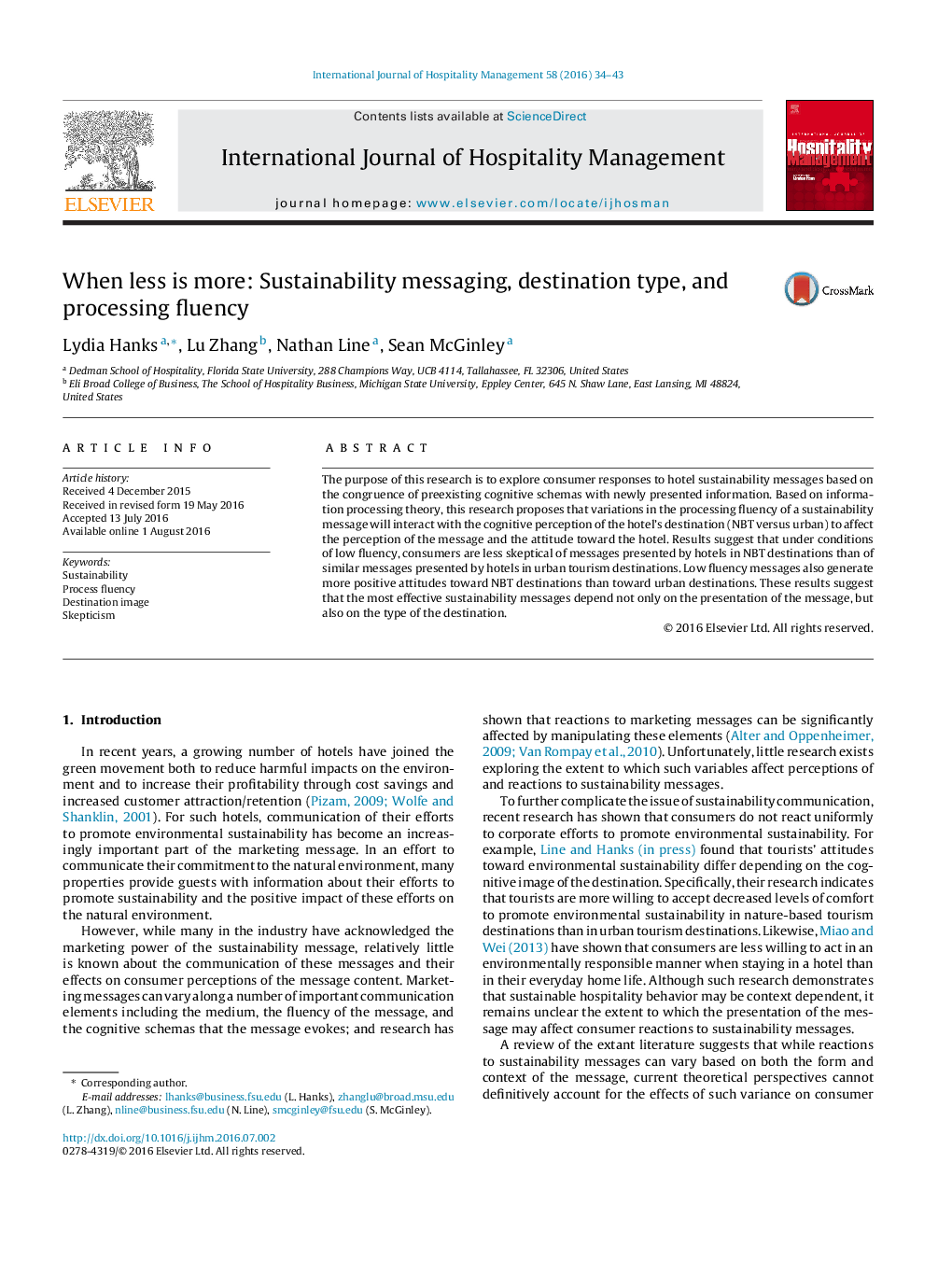| Article ID | Journal | Published Year | Pages | File Type |
|---|---|---|---|---|
| 1009139 | International Journal of Hospitality Management | 2016 | 10 Pages |
The purpose of this research is to explore consumer responses to hotel sustainability messages based on the congruence of preexisting cognitive schemas with newly presented information. Based on information processing theory, this research proposes that variations in the processing fluency of a sustainability message will interact with the cognitive perception of the hotel’s destination (NBT versus urban) to affect the perception of the message and the attitude toward the hotel. Results suggest that under conditions of low fluency, consumers are less skeptical of messages presented by hotels in NBT destinations than of similar messages presented by hotels in urban tourism destinations. Low fluency messages also generate more positive attitudes toward NBT destinations than toward urban destinations. These results suggest that the most effective sustainability messages depend not only on the presentation of the message, but also on the type of the destination.
